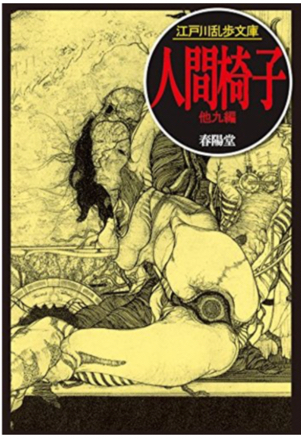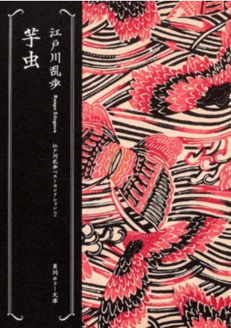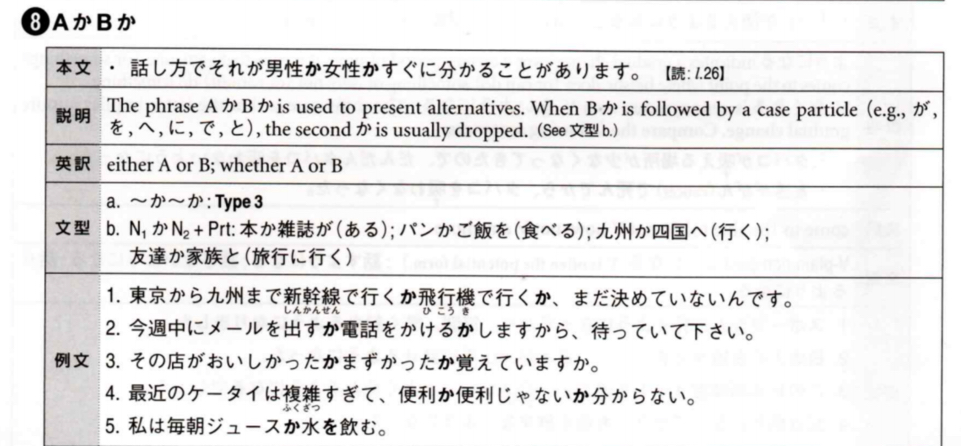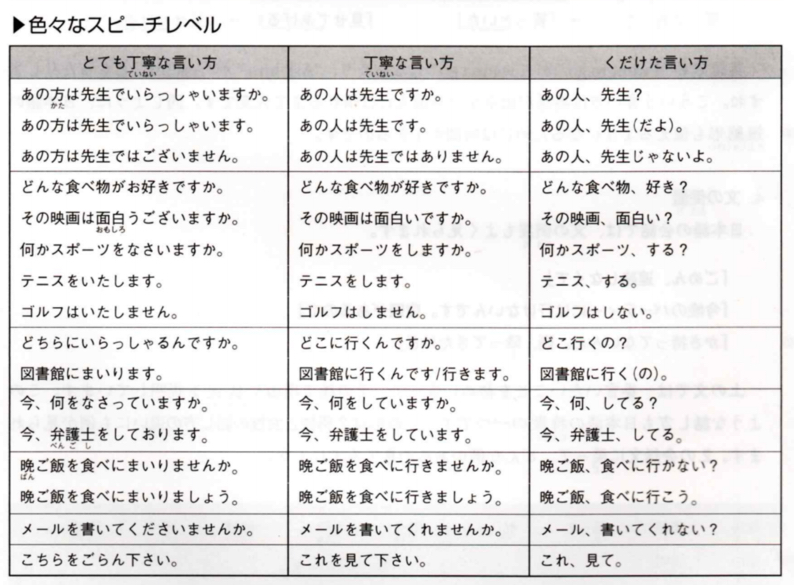上級へのとびら CH2−4(本文3)
江戸川乱歩の推理小説 Detective Novels by Ranpo Edogawa
Keywords
推理小説(すいりしょうせつ) – detective novel
猟奇的(りょうきてき) – bizarre
私立探偵(しりつたんてい)- private detective
解決(かいけつ)- solve
怪しい(あやしい)- sexual, wonder
雰囲気(ふんいき)- atmosphere
醸し出す(かもしだす)- produce
娯楽(ごらく)- entertainment
部類(ぶるい)- kind
変装(へんそう)- disguise as
おきまりのパターン – decided pattern
映像(えいぞう) – screen
登場(とうじょう)- appear
いかにして – how
家具職人(かぐしょくにん)- furniture maker
醜い容姿(みにくいようし)- ugly looking
芋虫(いもむし)- caterpillar
瞳(ひとみ)- pupil
失踪(しっそう) – missing
魅了(みりょう)される – to be attracted by
引き込まれる(ひきこまれる) – be drawn in
Please do not read the English translation yet if you would like to do “Listening Challenge”.
江戸川乱歩は、アメリカの小説家、エドガー・アラン・ポーの名前をとったペンネームで、本名は平井太郎と言います。
Ranpo Edogawa is a pen name that mimics the name of American writer Edgar Alan Poe. His real name is Taro Hirai.
1894年に生まれ、彼は100を超える推理小説を書き、映画や漫画もたくさんあります。
He was born in 1894, and wrote more than 100 detective novels, many became movies or anime.
彼の作品のキーワードは、「猟奇的」「お色気美女」「異常な性癖」です。
The keywords of his writings are “bizarre,” “sexy, beautiful women,” and “aberrant sexual propensity”.
私は怖い話が苦手ですが、子供の時にテレビドラマの再放送で「明智小五郎シリーズ」を何度もやっていて、怖いもの見たさで見ていた記憶があります。
I am not good at scary stories, though I remember I watching his Kogoro Akechi series, which was shown on TV repeatedly, out of ghoulish curiosity when I was child.
明智小五郎は私立探偵で、いろんな事件を解決します。
Kogoro Akechi is a private detective who solves many cases.
明智小五郎シリーズは、子供用の本にもなっているので、それほどヤラシイ感じではありませんが、やはり怪しい雰囲気は醸(かも)し出していました。
There are many Kogoro Akechi book series for children, so those are not so too sexual, however, I remember that they were mysterious.
江戸川乱歩の作品は推理小説ですし、どちらかと言うと娯楽の部類に入るので、大学の日本文学科では勉強しませんでした。
Ranpo Edogawa’s writings are mostly detective novels, so it is typically categorized as entertainment and it was not selected as study material for my Japanese major at university.
話は大体、何にでも変装できる明智小五郎が、最後にマスクをとって犯人が驚いて、捕まる、と言うおきまりのパターンです。
The story basically goes like this. Kogoro Akechi can disguise as anyone, he reveals himself, and the suspect is surprised and captured, that is the decided pattern.
たくさんの作品がドラマや映画になっているのですが、映像がとにかく怪しく、お色気美女が登場し、引き込まれていきます。
There are many dramas or movies based on his writings, though, it appears as mysterious, and sexy, beautiful women always comes along, so you will be attracted without realizing.
当時のトップ女優が映画の美女として登場しますが、やはりお色気が特徴ですので、監督はいかにして人気女優を怒らせずに脱がせるか、と言うことに必死だった、と言う話を聞いたことがあります。
Many of Japan’s top actresses act in the movies. Since the sexy atmosphere is his specialty, I heard the director of the movies always focus on how popular actresses take off their clothes without upsetting them.
明智小五郎の探偵シリーズの他にも、多数の作品がありますが、有名な推理小説に、”人間椅子”と言うものがあります。
Other than Kogoro Akechi series, he has many more writings. One of his famous detective novels is Human Chair.

貧乏な家具職人で醜い容姿の持ち主は、あまりに自分が作った椅子が好きすぎて、人間が入れるスペースを椅子に作って入ってしまいます。
He is a furniture maker who is ugly looking. He really likes the chairs he made, so he makes a space where a large man can enter into the chair.
そして、その椅子に女性が座って、自分と女性が皮一枚だけで密着していることに快感を覚えていきます。
Then, when women sits on the chair, he is attached to her with only one layer of leather in between them, and experiences a sexually pleasant moment.

また、別の作品、「芋虫」では、戦争で手足を失い、聞くことも話すこともできない夫のことを妻が世話します。夫のことを醜いと思っていますが、だんだんとサディスティックになっていき、瞳だけは綺麗な夫に不気味なものを感じて目玉をとってしまいます。
Also in the other writing, “Imomushi (caterpillar)”, a wife take care of her husband who does not have hands and legs and can’t hear or talk due to war. She thinks he is ugly, then, she became sadistic, and eventually she took out his eye balls since only his eyes were beautiful and felt weird.
妻は、夫の体に「ゆるして」と何度も書きました。ある日手足もなく目も見えない芋虫のような体の夫は、「ゆるす」と言うメモだけ残して失踪してしまいます。
The wife wrote on his body as, “Forgive me” repeatedly. One day the husband who looks like caterpillar without arms, legs and eye sight left memo saying ‘I forgive you”.
私は、「こ、、こわい!!!」と思います。
I think, “It’s scary!!!”
私は、こう言う猟奇的な話は本当に苦手です。
I really don’t like this kind of bizarre stories.
しかし、多くの人が江戸川乱歩のかく怪しい世界に魅了されてしまいます。
But many people are attracted to this mysterious world created by Ranpo Edogawa.
一度読んだら、あなたもきっと引き込まれてしまいますよ。映画も多数ありますので、ぜひ見てみてください。
I think you too will be drawn in once you read it. There are many movies, so please watch it once.
上級へのとびら CH2−4(本文3)
2. 男性と女性の話し方の違い
日本語の小説を読んでいると、話し方でそれが男性か女性かすぐに分かることがあります。
When reading a Japanese novel, we can sometimes tell right away if a character is a man or woman by the character’s way of speaking.

1) I haven’t decided yet whether I’m going to go from Tokyo to Kyushu by bullet train or by plane.
2) I will either e-mail you or call you sometime this week so please be waiting for that.
3) Do you remember if (the food at ) that restaurant was good or bad?
4) Cell phones these days are so complicated that it’s hard to say whether or not they are really useful.
5) I drink juice or water every morning.
特にくだけた話し方では、男女の話し方に違いが見られます。下の会話は、男女のどちらが話しているか、考えてみてください。
Especially in informal speech, we can see differences between the speech of males and females. Try to figure out whether the speakers in the following dialog are male or female.
A: 「あ〜、お腹、すいたなあ。」
A: Ah, I’m so hungry.
B:「俺も腹へった。この辺にうまいトンカツの店があるんだぜ。食いに行こうか。おごるよ。」
B: I’m hungry, too. There’s a good pork cutlet restaurant around here. Shall we go eat? My treat.
A:「いやよ、トンカツは。カロリーが高いから。」
A: No, not pork cutlets! Too high in calories.
B:「なんだ、じゃ、俺、一人で行こうっと。」
B: What?! Well, then, I’ll go by myself.
A:「あ、待って!その店、おいしいんでしょ。やっぱり、私も行くわ!」
A: Wait! (The food in) that restaurant is delicious, right? I’ll go after all!


1) Tom, you studied hard last night, so I guess your Japanese test today was easy.
2) Don’t you think this cake is great? I bought it at a famous shop. It was expensive.
3) You saw that movie, Mr. Tanaka? I saw it last week, too Wasn’t it great?
4) A: You are going with me to the concert tomorrow, right?
B: I told you that I’ve already got plans, so I can’t go. Did you forget?
B:「じゃ、今から行くぞ!」
B: Well, then, let’s go!
どうですか。言葉の使い方が随分違いますね。文字では分かりませんが、イントネーションもとても違います。
What do you think? The word usage is very different. It isn’t obvious from the words, but the intonation is also very different.
友達や恋人や家族と話す時、男性は自分のことを「僕」とか「俺」と言い、女性はたいてい「私」を使います。
When speaking to friends, boyfriends/girlfriends, or family, men refer to themselves as boku or ore (I) and women usually use watashi.
最近は男女の差が小さくなって、上の例のように、文末に「わ」「わよ」を使う女性や「ぜ」「ぞ」を使う男性は少なくなっていますが、でも、女性が「俺も腹へった」と言ったり、男性が「いやよ!」と言ったら、びっくりされてしまいます。
These days, the male-female gap has become smaller, and women who use wa and wa yo and men who use ze and zo at the end of their sentences, as in the example above, have become less common, but if a woman said “ore mo Hara hetta” or a man said “Iya yo” they would be met with a surprised reaction.
話し方の差が小さくなっても、使わない方がいい表現もあるということを知っておいて下さい。
Even though the differences in speech styles have lessened, you should know that there are phrases that you should not use.
